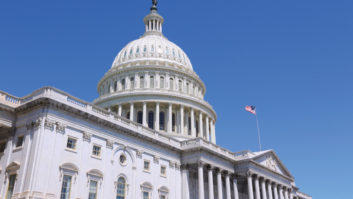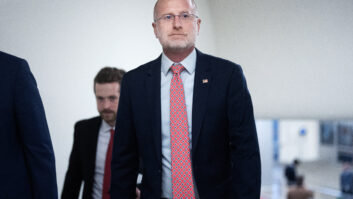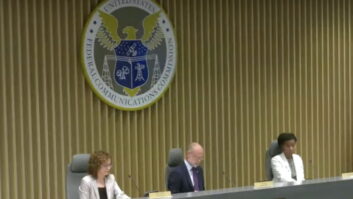A group of 50 state broadcaster organizations are telling the Federal Communications Commission that it’s time to remove outdated equal employment opportunity rules.
Many of the proposals presented in the FCC’s Notice of Proposed Rulemaking on equal employment opportunity would increase burdens on broadcasters and be of questionable constitutionality and little practical utility in achieving the commission’s stated goals, the group said.
The broadcasters filed their comments as part of the FCC’s request for reply comments on the commission’s Equal Employment Opportunity Compliance and Enforcement Notice of Proposed Rulemaking.
[Read: A Debate Over EEO Audits]
The FCC wants to reduce the regulatory burdens associated with the EEO rule without altering the substance of the rule.
“That can be accomplished quite simply and quickly by eliminating what has now become clear are repetitive and unproductive random EEO audits,” said the state organizations. Stations’ EEO performance is already reviewed at license renewal time and during mid-term reviews, and previous audits have confirmed “that they are not needed, as they have found a very high level of EEO compliance among broadcaster,” the group said in its filing.
“Alone among all other broadcast rules, the EEO Rule is the only rule enforced by random audits,” the group said. “There is no rational basis for implementing such an unusual, repetitive, and burdensome enforcement mechanism for EEO.”
The group also pointed to the questions of constitutionality that were raised about previous EEO rules. “[T]he DC Circuit has openly and repeatedly questioned whether the FCC has any compelling governmental interest in regulating the employment practices of broadcasters at all, a matter it has never had to reach in invalidating the prior iterations of the FCC’s EEO rules.”
As a result, any modified EEO rules adopted by the FCC should be as narrowly tailored as possible, the group said.
The New Jersey Broadcasters Association, which was as part of the 50 broadcaster group comment, filed a separate set of comments to advocate again that the FCC reassess its current documentation and paperwork approach to nondiscrimination and employment diversity.
“In the absence of evidence that the current FCC’s paperwork and recordkeeping requirements prevent or reduce discrimination, or increase employment diversity, the FCC should direct its regulatory efforts to finding effective ways to achieve the important goals of nondiscrimination and employment diversity,” the NJBA said.
The FCC’s current EEO requirements are unproductive and are not serving to achieve their intended goals, the organization said. Instead, it’s time for the industry to come “together to explore more effective options that will truly reduce discrimination and increase diversity in the broadcast station workplace,” the NJBA said.
Comments on the FCC’s EEO proposed rulemaking can be seen in the commissions’ ECFS database using Media Bureau Docket Number 19-177.





